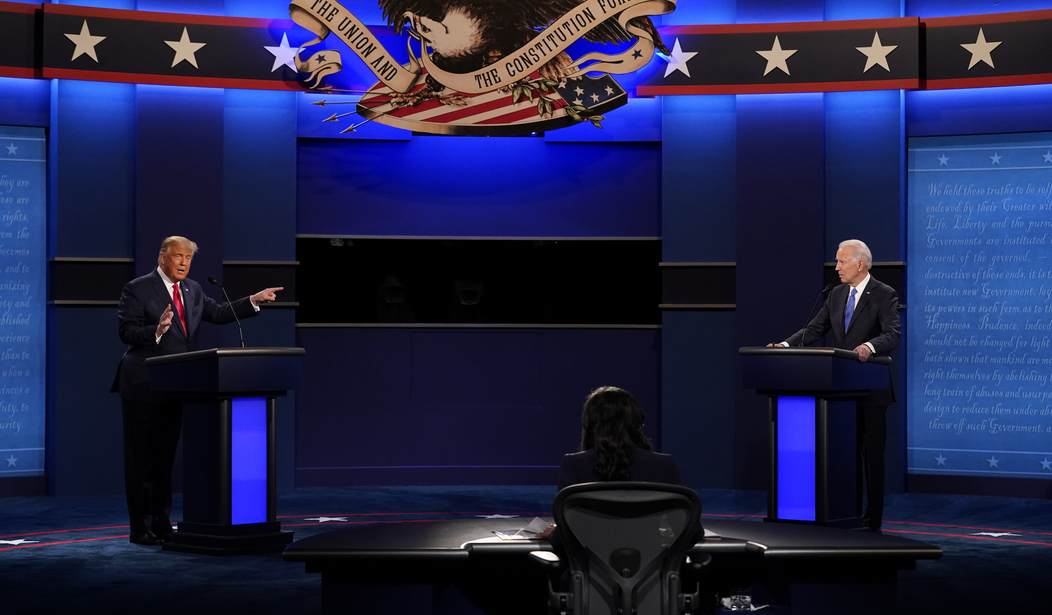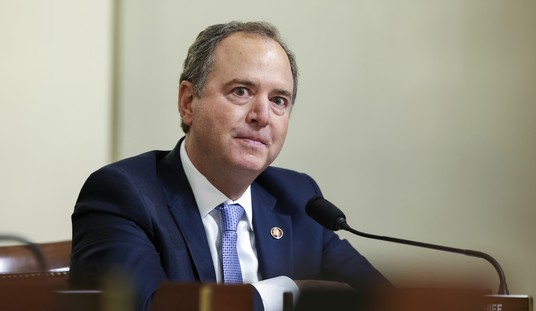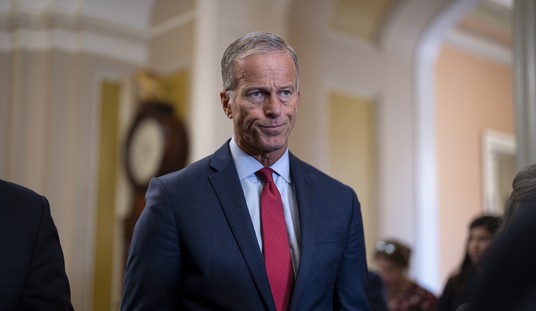Proving that it's never too late to counter the falsehoods of the mainstream press, RealClearPolitics has finally responded to a three-year-old hit piece from The New York Times, and it's a beatdown.
For those unacquainted with RealClearPolitics (RCP), the site primarily centers on aggregating poll results to produce averages that help put outliers into context. It also does some original reporting and provides links to other news sites of all ideological backgrounds, from the aforementioned Times to RedState.
ALSO SEE: The Biden Campaign Knows It's on a Losing Path
When the hit piece first dropped in 2020, a decision was made to ignore it. That decision has been reversed, and Carl Cannon, the top newsman at RCP, delivered a deep dive into how flawed the Times' reporting truly was.
The sleight-of-hand was right there in the headline. The New York Times simply declared that RCP “made a sharp right turn,” and suggested it will document how this happened.
The Times’ story asserted that during the period of counting absentee and late-arriving mail-in ballots, RCP took three days longer than other news organizations to call Pennsylvania for Joe Biden. It noted disapprovingly that we aggregated stories from other news outlets quoting Trump supporters who questioned the election results. It suggested that the RCP Poll Averages were manipulated to be favorable to Donald Trump.
We'll get into the details in a moment, but one accusation is immediately disprovable. RCP did not manipulate poll averages to be favorable to Donald Trump. How do we know that? Because the RCP average of the 2020 presidential race was far more favorable to Joe Biden than the actual results were.
I'd also point out how petty the first complaint is. The Times asserted bias based on the fact that RCP didn't call Pennsylvania as soon as some other outlets did. Is there some rule that electoral calls must be made at the same time? Did not calling the Pennsylvania election hurt Biden's feelings? What exactly was the problem in waiting for all the results to be tallied?
Regardless, the Times made a series of dishonest claims about how RCP aggregates news.
I went back and searched for those two headlines, both of which appeared on RCP on Nov. 16. The first was a link to an opinion piece from a conservative outlet, The Federalist. The second was a news story from the Washington Examiner posted on the left column, the section where we post breaking news. It ran between two other stories, “National Security Adviser Vows ‘Professional Transition’ of Power” and “Biden Turns Up Pressure for Administration Recognition.” In other words, it was part of a roundup of what was happening in both camps in the election aftermath. My review of the RCP front page for that period (and readers are free to look for themselves) shows balanced coverage of a heated debate taking place in the days after a very contentious election.
Peters wrote that we gave “top billing” to stories reinforcing the “false narrative” that Trump could eke out a win. That is a distortion: The Trump campaign launched a series of legal battles in several states, and we ran stories and opinion pieces reflecting that development, from both a Democratic and Republican perspective.
The Times hit piece wasn't produced out of genuine concern that RCP had taken a "sharp right turn." It was produced out of anger that RCP would dare to give Republicans a voice, not out of bias towards them, but out of basic fairness and diversity of thought. Running factual stories from both perspectives about lawsuits the Trump campaign was filing, for example, is not favoritism. It's basic journalism.
Ironically, as Cannon points out, "top-billing" was actually given to various Times stories throughout the period in question. Diversity of opinion has been a hallmark of RCP for as long as I've been aware of the site. Writers at the Times may break out into cold sweats at the thought, but that's simply evidence of their desire for censorship.
Returning to the issue of Pennslyvania, Cannon points out that they didn't want to get ahead of themselves due to errors committed by various outlets in the past.
In both his email to Tom Bevan and his Nov. 17, 2020, story, Jeremy Peters questioned RCP’s decision to wait until a week after Election Day before moving Pennsylvania into Biden’s column on our election maps. CNN, CBS, ABC, and the Associated Press called the state before noon on Saturday, Nov. 7 – and with it the 2020 election. Biden held a 34,000-vote lead in Pennsylvania with 62,000 absentee ballots still to count, along with an estimated 100,000 provisional ballots.
You can't make this stuff up. The Times used RCP's caution as evidence of bias. According to that standard, it is bad for a news outlet to verify a claim before making it. Does that sound right to anyone?
But as I questioned earlier, why does it even matter? Election calls are ultimately irrelevant. The only thing that matters is what the real vote totals add up to. The Times' whining echoed a typical attitude shown at the time, which is that if you didn't bend over backward to affirm the 2020 election as the "most secure in history," you were somehow a threat to democracy.
Then there's the idea that RCP somehow manipulates its polling averages to benefit Republicans. Again, the Times' accusations don't stand up to scrutiny.
This complaint doesn’t withstand scrutiny either. First, to the degree the RCP Poll Averages favored one candidate over the other, they favored the Democrat Joe Biden more than the Republican Donald Trump. Second, in the seven closest states in the 2020 election – those decided by three percentage points or less – the RCP Poll Averages were demonstrably more accurate than the New York Times’ own poll, and it wasn’t even close.
Not to repeat myself, but at the core of the Times' various complaints is an anger that sources of information would dare not affirm Joe Biden at all times. As pointed out above, RCP's averages were more accurate than the Times' polling. Yet, RCP is being faulted for having methodologically that produced a result closer to reality. It's absurd.
None of this means RCP is infallible. Ultimately, while polling averages can reduce the effect of outliers, it is a garbage-in, garbage-out system. It's better than jumping from poll to poll, picking and choosing which one fits one's desired narrative, but it's still imperfect. RCP's averages amounted to a lot of big misses in the 2022 election, specifically in the various Senate and gubernatorial races. Why? Because if the vast majority of polls in the average are off, the average itself will be off. That's simple mathematics, not bias.
In the end, the Times' piece was filled with inaccuracies, and it was written for one reason: To stroke Joe Biden's ego. There was no news value in attacking RCP with baseless claims. There was value to the Times in fluffing the current president under the guise of news. It's about time RCP set the record straight.














Join the conversation as a VIP Member